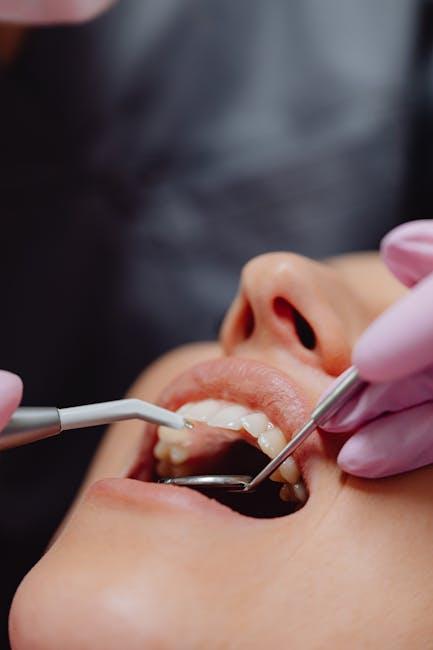
What Happens if the Adult Medicaid Dental Benefit Goes Away?
Access to dental care is a critical component of overall health, yet many adults rely on Medicaid for essential dental benefits. But what happens if the adult Medicaid dental benefit disappears? In this article, we explore the potential consequences of losing adult dental coverage through Medicaid, the importance of these benefits, and practical tips to maintain oral health in the absence of coverage.
Understanding Adult Medicaid Dental Benefits
Medicaid, the joint federal and state program serving low-income individuals, often includes dental benefits for children, but coverage for adults varies by state. Where adult dental benefits are provided, Medicaid covers preventive care, treatment of dental diseases, and sometimes more complex procedures.
- Preventive services such as cleanings, exams, and X-rays
- Restorative services like fillings and crowns
- Emergency dental care to alleviate pain or infections
- In some states, dentures and oral surgery
These benefits help low-income adults maintain oral health and avoid costly and painful dental problems.
Consequences of Losing Adult Medicaid Dental Benefits
The removal or reduction of adult dental coverage under Medicaid has far-reaching consequences that affect health, economic stability, and quality of life.
1. Decline in Oral Health
Without coverage, many adults may delay or altogether forego dental care due to cost barriers. This can lead to increased rates of untreated dental decay, gum disease, and infections, which affect more than just the mouth.
2. Increased Emergency Room Visits
Adults lacking dental benefits often turn to emergency rooms (ERs) for dental pain relief. ERs can treat acute pain but rarely provide definitive dental care, resulting in repeat visits and higher health care costs.
3. Higher Long-Term Costs
Ignoring dental problems often escalates their severity, leading to more invasive treatments such as tooth extractions or oral surgeries that could have been avoided with early intervention. Long-term care costs increase substantially as a result.
4. Impact on Overall Health
Oral health is closely linked to systemic health. Poor oral hygiene and untreated infections relate to heart disease, diabetes, respiratory infections, and adverse pregnancy outcomes.
5. Social and Psychological Effects
Losing dental benefits can impact self-esteem, employability, and social interactions. Dental problems may cause pain, speech difficulties, and visible tooth loss, affecting emotional well-being.
| Impact Area | Description |
|---|---|
| Oral Health | Increased untreated dental disease, pain, and infections. |
| Healthcare System | More ER visits for dental emergencies, higher system costs. |
| Economic | Greater out-of-pocket expenses, reduced productivity. |
| Public Health | Worsened chronic disease outcomes linked to poor oral health. |
| Psychosocial | Reduced quality of life, social stigma, mental health strain. |
Benefits of Maintaining Adult Medicaid Dental Coverage
Retaining adult Medicaid dental benefits leads to noteworthy advantages for individuals, families, and communities.
- Improved Preventive Care: Routine check-ups and cleanings help prevent tooth decay and gum disease.
- Reduced Overall Medical Costs: By tackling oral health early, more costly systemic health issues are prevented.
- Better Quality of Life: Improved ability to eat, speak, and socialize comfortably.
- Health Equity: Offers vulnerable populations fair access to essential dental services.
Practical Tips if Adult Medicaid Dental Benefits Are Lost
Although losing coverage is a major challenge, there are ways adults can still protect their oral health and manage dental costs.
1. Utilize Community Dental Clinics
Many areas have federally qualified health centers (FQHCs) and nonprofit clinics offering dental care on a sliding scale. These can be good substitutes for Medicaid dental services.
2. Seek Dental Schools
Dental schools provide treatment by supervised students at reduced costs. This can increase access to preventive and minor restorative services.
3. Prioritize Preventive Home Care
- Brush twice daily with fluoride toothpaste.
- Floss daily to remove plaque between teeth.
- Limit sugary and acidic foods and drinks.
- Stay hydrated and use mouth rinses if recommended.
4. Explore Alternative Financing Options
Some dental providers offer financing plans, discount programs, or payment plans to reduce upfront costs. Additionally, dental savings plans might be considered.
5. Educate Yourself on Emergency Care Options
If dental pain arises, know where to access urgent care clinics specifically equipped to handle dental emergencies outside of ERs.
Case Study: Impact of Adult Medicaid Dental Benefit Removal
In a Midwestern state that cut adult Medicaid dental benefits in 2010, public health researchers observed:
- A 35% increase in dental-related ER visits within two years.
- A reported 50% increase in the number of adults delaying needed dental care due to cost.
- Significant worsening of periodontal disease among Medicaid-eligible adults.
- Heightened financial burden on community clinics trying to absorb increased demand.
This case underscores the importance of maintaining Medicaid dental benefits for low-income adults.
Voices From the Field: Firsthand Experiences
“When my Medicaid dental benefits were cut, I couldn’t afford even basic cleanings. My cavities worsened until I had to get several teeth pulled. It was painful and embarrassing. I wish there was a way to keep these benefits safe for people like me.” — Maria J., Medicaid recipient
“Our ER has seen more dental emergencies since adult dental benefits were eliminated. We end up providing pain relief but cannot fix the underlying problems. It’s frustrating and costly.” — Dr. Allen P., Emergency Physician
Conclusion
The potential loss of adult Medicaid dental benefits threatens the health and well-being of millions of low-income adults nationwide. Beyond increasing the risk of untreated dental disease, such changes can strain healthcare systems and exacerbate health inequities. Retaining Medicaid dental benefits supports preventive care, lowers overall costs, and promotes better quality of life.
For individuals facing loss of coverage, exploring community-based dental resources and adopting diligent home care routines are essential steps. Advocacy and awareness remain critical to preserving these vital benefits and ensuring equitable access to dental care for all adults.
If you or someone you know depends on Medicaid dental coverage, stay informed through trusted sources like adanews.ada.org for updates on policy changes and resources.


